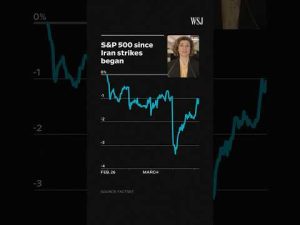In recent discussions surrounding foreign policy strategy, President Trump’s approach has become a cornerstone of debate, particularly among conservatives. His philosophy can be boiled down to a simple yet effective principle: America’s interests come first. This perspective emphasizes the importance of determining what the United States gains from international dealings and what sacrifices might be required to achieve specific objectives. Rather than throwing resources at every conflict or diplomatic crisis, Trump suggests that a measured, calculated strategy could yield better results for the American people.
The key component of Trump’s foreign policy is economic leverage. By prioritizing America’s economy, he proposes that negotiations and resolutions can often be achieved through financial incentives rather than military intervention. This economic focus resonates with a fundamental conservative belief: a strong economy not only supports national interests but also enhances a country’s stature on the global stage. Global counterparts may be more inclined to collaborate when they recognize that their financial welfare is tied to American prosperity.
While a military presence is undoubtedly necessary, Trump has signaled that any military action should be strategic, precise, and focused on minimizing collateral damage. This suggests a departure from the open-ended conflicts that have characterized previous administrations, which often led to extensive military engagements with questionable outcomes. A leaner, more lethal military strategy aligns well with conservative values, advocating for a defense force that prioritizes effectiveness over quantity. The idea is that when military intervention is required, it should be executed with precision and foresight.
However, the emphasis on economic negotiations raises an interesting hypothetical scenario. Imagine a world where nations prioritized diplomacy and economic collaboration over military aggression. Would this shift in focus lead to a more peaceful global landscape? While some may argue that it’s naïve to envision a purely diplomatic resolution to conflicts, the historical track record of military interventions suggests that the aftermath of such actions often leads to prolonged unrest and instability. A focus on economic solutions allows for a more sustainable approach to foreign relations.
Ultimately, as conservatives evaluate the effectiveness of Trump’s foreign policy, it is essential to weigh the implications of a more economically driven strategy. With a focus on what’s best for America, it invites a deeper analysis of how the U.S. interacts with the rest of the world. In a time when political discourse often gets bogged down by partisan squabbles, returning to fundamental principles—like prioritizing national interests and focusing on economic strength—might just be the prescription needed to steer the country in a stable direction. A combination of negotiation tactics, economic foresight, and, when necessary, calculated military action could very well be the formula for a prosperous future. Who knew that saving America could be as simple as evaluating the dollar signs and wielding a big stick only when essential?







